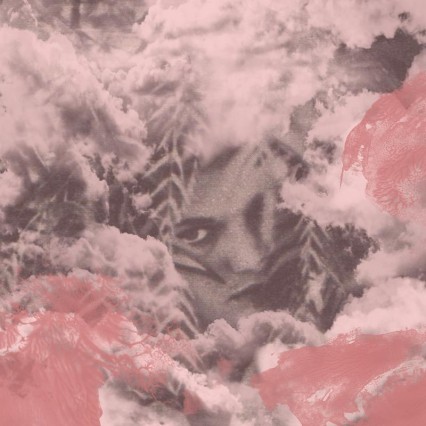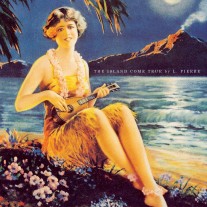Dog Bite, aka Washed Out keyboardist Phil Jones (not to be confused with the injury-prone Manchester United defender), first came to our attention towards the end of last year following the release of his fuzzed up single ‘Prettiest Pills’, which we described as “pleasurably hazy in that way that no one can quite bring themselves to describe as ‘Chillwave’ anymore”.
Well, get ready to avoid using the word Chillwave all over again because Jones’ debut album takes that ball and gently lobs it into the ocean, in slow motion, while the sun slowly dips over the horizon. The album is bathed in sunshine, to the point where you could probably prescribe it as a treatment for Seasonal Effective Disorder. Listening to opening track ‘Forever, Until’ is like driving beside the sea with the windows down; which kind of makes it sound like the soundtrack to a terrible Nissan advert but trust us, it’s a good feeling.
‘Supersoaker’ is similarly sun-kissed, and not just because the title brings back memories of charging around a local playground with water balloons and plastic bottles (there was always one little bastard who lorded it over everyone with a supersoaker). ‘You’re Not That Great’ is perhaps the album’s key track though, starting with sinister cymbals and a menacing Bauhaus bassline that is quickly neutralised by rippling guitars, with a satisfyingly slackerish Beck-style breakdown towards the end.
Maybe it’s just down to their ambush album release this week, but there’s a touch of My Bloody Valentine to tracks like ‘No Sharing’ too, albeit if they kept their amps at a reasonable level. Another trick is slowing things down just enough to make them feel slightly dreamlike. Hence, ‘The Woods & The Fire’ sounds like a Broken Social Scene 7″ being played at 33.3 RPM (while ‘My Mary’ is like a Deerhunter 7″ played at the same speed). The chopped and screwed-style approach works best on ‘Paper Lungs’ which feels like gradually, endlessly falling into a swimming pool, like the ‘Gutterballs’ scene from The Big Lebowski only with Omid Djalili on that terrible ITV diving program, off his bonce on disassociatives.
Sometimes this approach has more of a numbing effect though, and it has to be said that there are a few tracks which slip into being a little dull and ineffectual; ‘Stay Sedated’ in particular could do with taking less of its own advice. Still, at its best the record has a viscous quality that virtually drips out of your stereo, like the last bit of chocolate sauce off your Mum’s wooden spoon (only a lot less disturbing than that sounds). This is one animal bite you won’t want to avoid.






Follow us
Follow us on Facebook Follow us on Twitter Follow us on Google+ Subscribe our newsletter Add us to your feeds